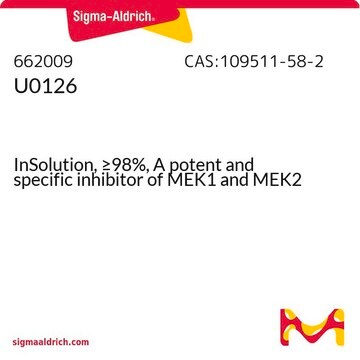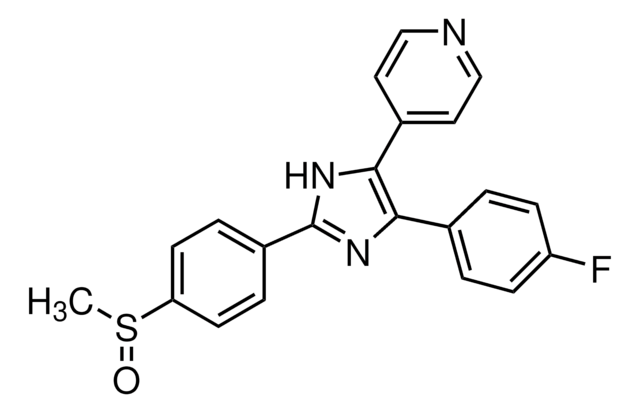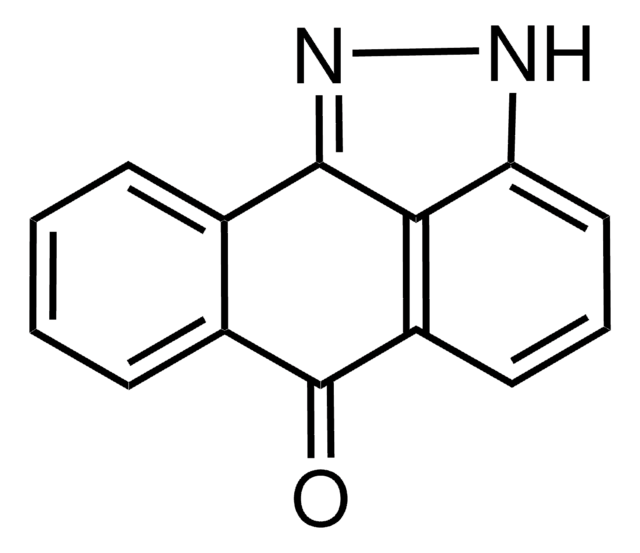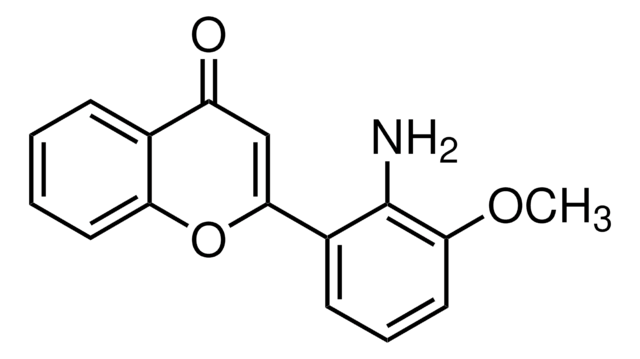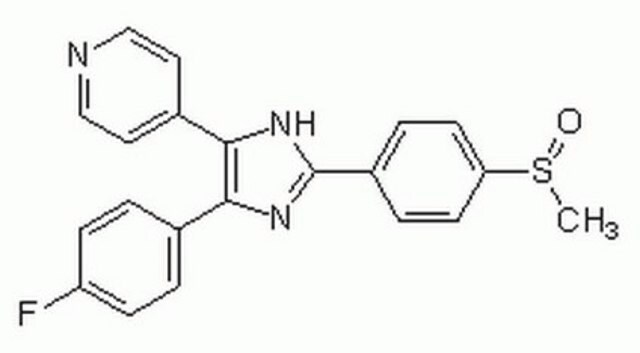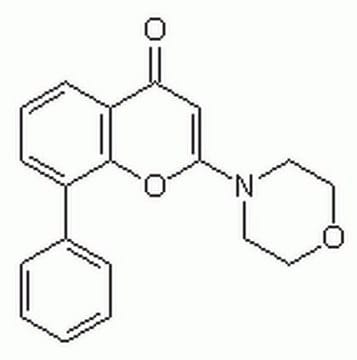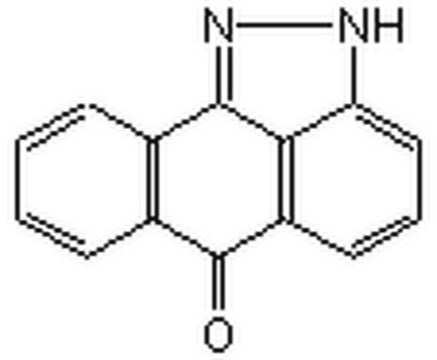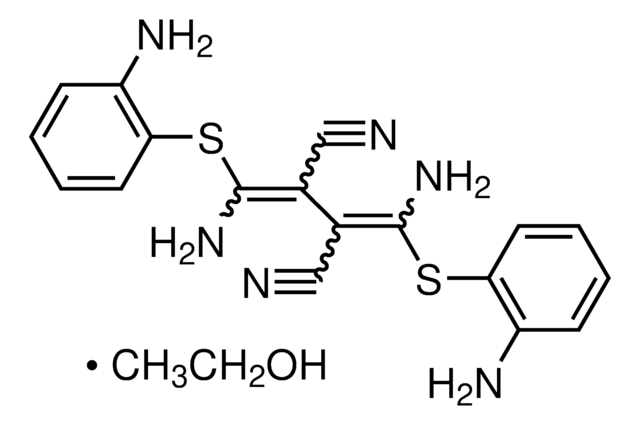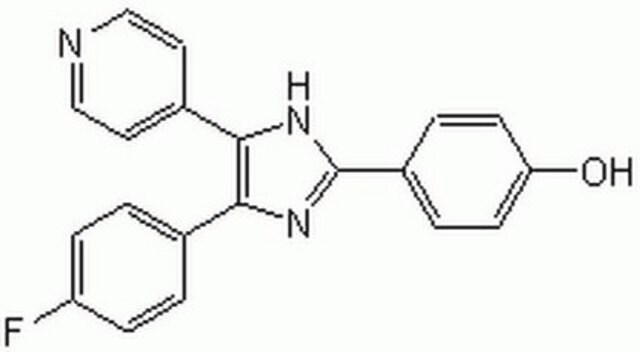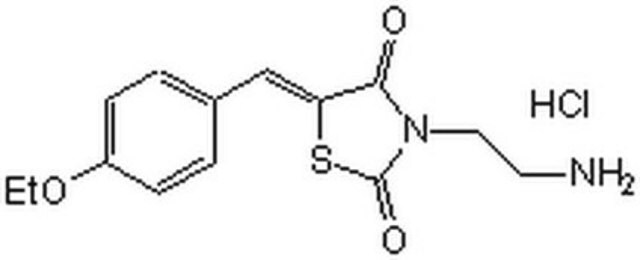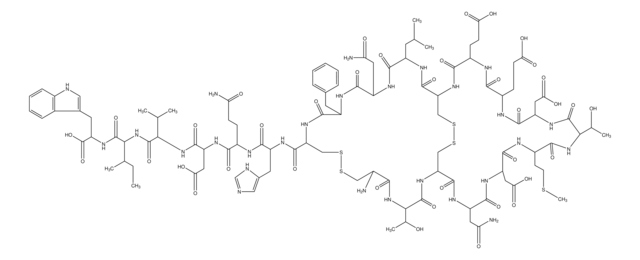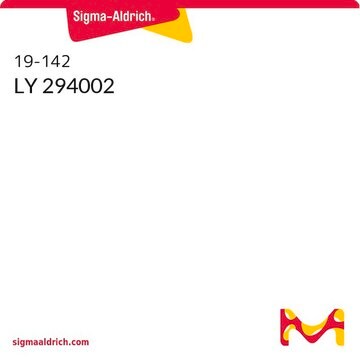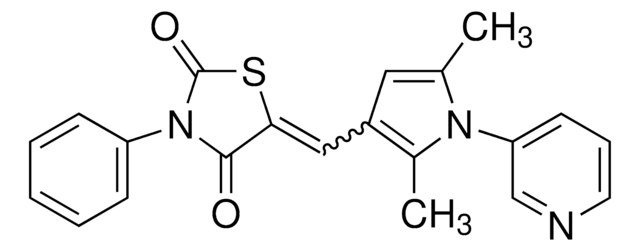662005
U0126
≥98% (HPLC), solid, MEK inhibitor, Calbiochem®
Synonym(s):
U0126, 1,4-Diamino-2,3-dicyano-1,4- bis(2-aminophenylthio)butadiene, MEK Inhibitor VI, 1,4-Diamino-2,3-dicyano-1,4-bis(2-aminophenylthio)butadiene, MEK Inhibitor VI
About This Item
Recommended Products
product name
U0126, U0126, CAS 109511-58-2, is a potent and specific inhibitor of MEK1 (IC₅₀ = 72 nM) and MEK2 (IC₅₀ = 58 nM). The inhibition is noncompetitive with respect to both ATP and ERK.
Quality Level
Assay
≥98% (HPLC)
form
solid
manufacturer/tradename
Calbiochem®
storage condition
OK to freeze
protect from light
color
white
solubility
DMSO: 200 mg/mL
shipped in
ambient
storage temp.
−20°C
InChI
1S/C18H16N6S2/c19-9-11(17(23)25-15-7-3-1-5-13(15)21)12(10-20)18(24)26-16-8-4-2-6-14(16)22/h1-8H,21-24H2/b17-11+,18-12+
InChI key
DVEXZJFMOKTQEZ-JYFOCSDGSA-N
General description
Biochem/physiol Actions
MEK1 and MEK2
Packaging
Warning
Reconstitution
Other Notes
DeSilva, D.R., et al. 1998. J. Immunol. 160, 4175.
Duncia, J.V., et al. 1998. Biorg. Med. Chem. Lett.8, 2839.
Favata, M.F., et al. 1998. J. Biol. Chem. 273, 18623.
Legal Information
Storage Class Code
11 - Combustible Solids
WGK
WGK 2
Flash Point(F)
Not applicable
Flash Point(C)
Not applicable
Regulatory Listings
Regulatory Listings are mainly provided for chemical products. Only limited information can be provided here for non-chemical products. No entry means none of the components are listed. It is the user’s obligation to ensure the safe and legal use of the product.
PDSCL
Deleterious substance
JAN Code
662005-20MG:
662005-10MG:
662005-3GM:
662005-1MG:
662005-5MG:
662005-VMG:
Certificates of Analysis (COA)
Search for Certificates of Analysis (COA) by entering the products Lot/Batch Number. Lot and Batch Numbers can be found on a product’s label following the words ‘Lot’ or ‘Batch’.
Already Own This Product?
Find documentation for the products that you have recently purchased in the Document Library.
Customers Also Viewed
Our team of scientists has experience in all areas of research including Life Science, Material Science, Chemical Synthesis, Chromatography, Analytical and many others.
Contact Technical Service
